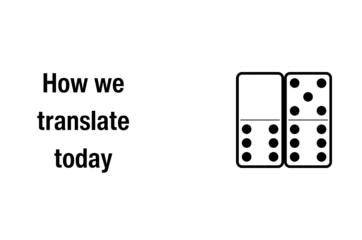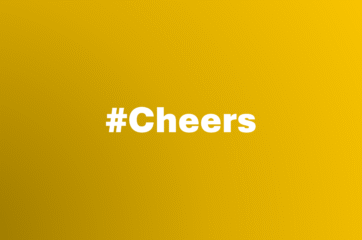Why a custom DeepL glossary makes all the difference

In today’s fast-paced, multilingual business world, machine translation tools like DeepL and large language models (LLMs) are indispensable. They’re fast, efficient, and surprisingly accurate ─ until they’re not. When you’re using these tools and your content involves specialised language, brand or product terms, or a particular tone of voice, the generic output doesn’t always cut it.
That’s where SwissGlobal’s custom multilingual DeepL glossary service comes into play. We help you take control, ensuring your translations consistently reflect your brand voice, industry standards, and terminology every time you use your DeepL Pro.
When you work directly in DeepL instead of outsourcing your texts for professional translation, you may notice that the terminology and wording produced by the machine translation engine don’t match your internally approved terms. However, in the hustle of your day, you might not have time to explore all the features, or you may not be sure how to set up a multilingual glossary.

Why use a custom DeepL glossary?
Generic translations often miss the mark when the content contains idiomatic expressions, humour, or specialised, industry-specific terms. The following examples demonstrate that DeepL still has weaknesses in handling idiomatic expressions, particularly those with strong cultural connotations. Machine translation output is usually quite good, but DeepL can struggle with understanding context and culture.
| Original phrase | Meaning | DeepL translation | Correct translation |
| Ich glaub, ich steh im Wald. | I’m confused. | I think I’m standing in the forest. | I have no idea/clue what’s going on. |
| Il ne faut pas pousser mémé dans les orties. | Don’t overdo it. | Don’t push grandma into the nettles. | Don’t push it too far. |
| Avere le mani in pasta. | To be involved in something. | Having your hands in the dough. | I’m involved in it. |
Translate the way you speak
Rather than relying on one-size-fits-all translations, a custom glossary (for either DeepL or ChatGPT) allows you to define key terms the way you want them to be used during translation or content creation. It bridges the gap between AI-generated content and your own DeepL or ChatGPT translation, making sure your message remains clear and aligned with your brand identity.
How does a custom glossary work?
We create a custom glossary based on existing content from your internal documents, websites, or previous translations. that is then imported into your DeepL Pro account for unlimited use. This approach means your terminology is directly extracted from the language and texts you already use, giving your translations within DeepL a solid foundation of reference and precision.
- You provide your materials, including internal documents, websites, product descriptions, etc.
- We extract key terms: Based on your actual content, using terminology tools and expert review.
- We build your glossary: 35–40 curated terms for a language pair of your choice, reviewed by a professional linguist.
- We import it into your DeepL Pro or ChatGPT account, ready for use.
- You share the custom multilingual glossary with your entire team.
Simply provide us with your materials, and we’ll handle the rest! Even if you only have your website as a reference.
What do you get?
When you choose our custom multilingual DeepL glossary creation service, you’ll get immediate ROI. If you’ve already integrated DeepL Pro or another machine translation tool into your daily work routine, we can make it even more effective.
Have you ever encountered a term that DeepL or ChatGPT doesn’t translate the way you want it to? And does this happen repeatedly? We’ll change that for you!
Example 1: You want “Kundenerlebnis” to always be translated as “customer journey”, not “customer experience”. We lock that in.
Example 2: Your product “EcoGuard” must never be translated. We mark it as “do not translate”.
Why does a custom multilingual glossary for DeepL matter?
A well-built custom DeepL glossary enhances more than just accuracy ─ it brings structure and stability to your multilingual content. It helps:
- Maintain consistent use of terms across all content and documents
- Avoid common errors or misinterpretations
- Streamline internal revision and approval processes
- Align DeepL or ChatGPT output with your preferred terms
It’s a practical solution if you care about the quality and integrity of your professional communication. When you and your colleagues translate with the online DeepL-Editor the custom glossary ensures that your preferred terminology is automatically applied, resulting in consistent, brand-aligned translations across your team.
More ways to customise your DeepL and ChatGPT
Need to cover more ground? We offer several service options to customise your DeepL or fine-tune your ChatGPT to your needs:
- Additional language pairs for broader reach
- Extended term lists for product lines or regions
- Topic-specific glossaries for different teams or departments
- Ongoing glossary updates and maintenance
- Style guide development for consistent tone (available for DeepL Pro and ChatGPT Plus users)
- Machine translation with professional post-editing
Smarter input, better results
AI is only as effective as the data it uses. By providing DeepL or ChatGPT with a well-crafted glossary, you equip them with the tools to create content that sounds natural, professional, and aligned with your brand. Let’s define the vocabulary that drives your business.
Get in touch with us today to build a multilingual custom DeepL glossary that speaks your language.
-
DeepL
glossary creation
Language Services
Terminology
translation


